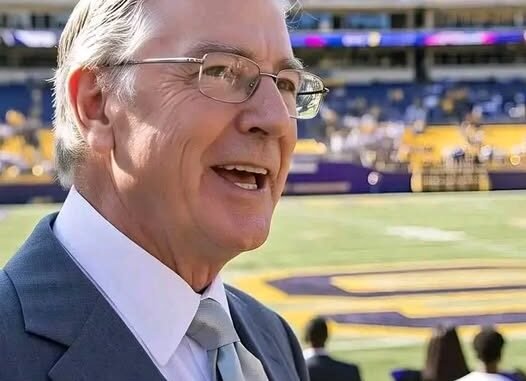
In the storied history of LSU football, few names resonate with the same level of reverence as Tommy Casanova. A three-time All-American, a College Football Hall of Famer, and a player so legendary his No. 37 jersey is retired, Casanova’s name is synonymous with a golden era of Tiger football. After a distinguished career in the NFL, medicine, and politics, the prodigal son has returned. In a move that has sent a wave of excitement through the LSU community, Casanova has been named a Special Assistant to the Athletic Director, marking a powerful homecoming for a man who embodies the very best of the university.
This is more than just a ceremonial title; it is a strategic and symbolic move by LSU’s athletic department. Bringing a figure of Casanova’s stature back into the fold is a powerful statement about the program’s commitment to its legacy and to the values that have defined it for generations. For a fan base that holds its legends in the highest regard, this is a moment of profound joy.
Tommy Casanova’s journey is one of the most unique and inspiring in all of sports. Born in Crowley, Louisiana, he was a high school phenom who could do it all. When he arrived at LSU, he was a player so versatile that coaches struggled to find a single position for him. He was a running back, a safety, and a prolific kick and punt returner. He led the Tigers’ freshman team in rushing, and as a sophomore, he was so good that head coach Charlie McClendon called him one of the most gifted athletes he had ever coached.
Casanova’s time in Baton Rouge from 1969-71 was the stuff of legend. He earned First-Team All-American honors in his final two seasons, was an All-SEC performer all three years, and was a consensus All-American in 1970 and 1971. In a memorable 1970 game against Ole Miss, he tied an NCAA record with two punt return touchdowns, a feat that cemented his status as a big-play machine. His on-field brilliance was matched only by his academic pursuits, a rare combination for a star athlete of that era.
After a brilliant college career, Casanova was drafted by the Cincinnati Bengals in the second round of the 1972 NFL Draft. He continued his success at the professional level, earning three Pro Bowl selections in just six seasons. He was a defensive standout, known for his intelligence, instincts, and knack for the big play. But what truly sets Casanova apart is what he did next. At the height of his career, at just 28 years old, he shocked the sports world by retiring from the NFL to pursue a medical degree.
This was an unprecedented move, a testament to a man who saw his athletic career as a means to a greater end. He went on to become an ophthalmologist in his hometown of Crowley, specializing in eye surgery and eyelid reconstruction. He also served a term in the Louisiana State Senate, continuing his life of public service.
Casanova’s new role as a Special Assistant to the Athletic Director is a perfect fit for a man of his unique talents and experiences. He will likely serve as an ambassador for the university, leveraging his deep ties to the community and his legendary status to connect with former players, donors, and fans. He can be a mentor to current student-athletes, offering them guidance on everything from managing their careers to preparing for life after football. His story is a powerful lesson in the importance of education, purpose, and community service—a lesson that resonates deeply with the values of a major university.
This is more than just a job; it is a homecoming for a man who has always been a part of the LSU family, even when he was away. He is returning to a place where his legend was born, a place where his No. 37 jersey hangs in the rafters as a reminder of his greatness. His presence in the athletic department will be a constant source of inspiration, a tangible link to a glorious past that can help shape a bright future for LSU athletics.
Leave a Reply